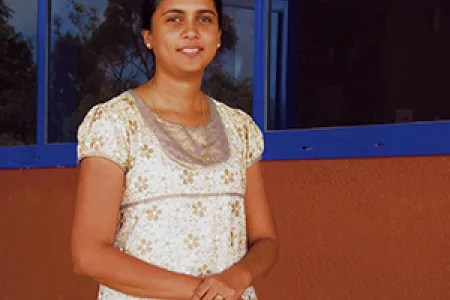Red hot Alice puts mums and bubs at risk
The projected rise in Central Australia’s future temperature may pose an increased health risk to women in the late stages of pregnancy, a Charles Darwin University researcher has warned.
In a paper published in the current edition of International Journal of Environmental Research and Public Health, lead author Dr Supriya Mathew said researchers had identified a statistically important link between premature births and extreme heat.
“We focused the study on Alice Springs, which has a high preterm delivery rate relative to the rest of Australia,” Dr Mathew said.
“Of the (almost) 17,000 single natural births at Alice Springs Hospital between 1986 and 2013, about 9 per cent (1401) were premature.
“With more hot days due to climate change, the risk posed by extreme heat is of particular relevance to the community and to health practitioners.”
Dr Mathew said that on average, Alice Springs experienced about 94 days each year where the temperature reached 35 °C or more.
“CSIRO modelling tells us that the number of days where the temperature will be more than 40 °C is likely to double by 2030, and likely to triple by 2090 even in an intermediate greenhouse gas emission scenario.
“Pregnant women will need to reduce their exposure to extreme heat during the summer months.”
She said there were personal, familial, social and economic costs associated with the birth of babies before full term.
“Preterm birth is one of the leading causes of death among children under five years of age, whereas for those who survive, it can result in ongoing health challenges during childhood and later in life.”
Dr Mathew said several studies had examined the association between extreme temperature and preterm births in other places, but this was believed to be the first in arid Australia.
“There are other environmental factors that we think may have an effect on preterm birth, such as humidity and air quality, but these were outside the scope of this study.”
The project involved researchers from CDU’s Northern Institute, Menzies School of Health Research, and Flinders University, and was funded with a collaborative grant from CDU and Menzies.
Full article: W: mdpi.com
